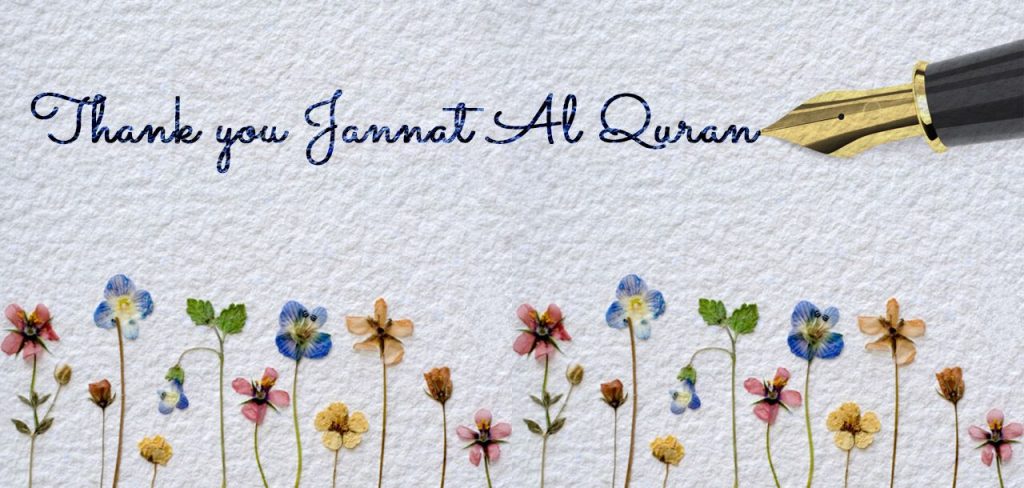Trust in Allah
And He will provide him from [sources] he could never imagine. And whoever puts their trust in Allāh, then He will suffice him. Verily, Allāh will accomplish His purpose. Indeed, Allāh has set a measure for all things. Al-Qur’ān, 65:3.
The root of Tawakkul is ‘reliance’ or ‘dependence’. We say that we depend on Allāh (subḥānahu wa taʿālā) for everything, and place trust in Him. The reality of Tawakkul is that we place our trust and reliance on Allāh (subḥānahu wa taʿālā) in terms of both our worldly affairs, as well as our Dīn, as well as utilising our visceral, or tangible means of attaining that which we want to attain.
“If you had all relied on Allah (SWT) as you should rely on Him, then He would have provided for you as He provides for the birds, who wake up hungry in the morning and return with full stomachs at dusk.” [At-Tirmidhi]
Tawakkul, therefore, involves belief, dependence, and action. This is because in order to gain at least some level of Tawakkul, the slave needs to be aware of the fact that all the matters of this world and the Hereafter lie in the Hands of Allāh (subḥānahu wa taʿālā). Nothing occurs except by His Permission and His Leave.
Tawakkul is a light for our hearts and a means for us to seek nearness towards Allah (SWT) in a manner that absolutely nothing else can achieve. The essence of this quality of the heart is built upon two very important pillars: dependence upon Allah and trust in Allah.
He states in Sūrah Al-Anfāl, referring to the qualities of Al-Mu’minūn:
‘The believers are only those who, when Allāh is mentioned, feel a fear in their hearts and when His Verses are recited to them, they increase their Faith; and they put their trust in their Lord.’ Al-Qur’ān, 8:2.
We also have many, many examples from our Prophet Muḥammad (sall Allāhu ʿalayhi wa sallam) including examples of certain supplications which he made. In an authentic ḥadīth contained in Bukhārī and Muslim, Ibn ʿAbbas (raḍiy Allāhu ʿanhu) reported that the Messenger of Allāh (sall Allāhu ʿalayhi wa sallam) used to supplicate:
‘O Allāh! To You I have submitted, and in You do I believe, and in You I put my trust, to You do I turn, and for You I argued. O Allāh, I seek refuge with You through Your Power; there is none worthy of worship except You Alone; that You safeguard me against going astray. You are the Ever Living, the One Who sustains and protects all that exists; the One Who never dies, whereas human beings and jinn will all die’.
What this demonstrates is just how necessary this trust and reliance on Allāh is, whereby we make Allāh the disposer of our affairs. As it becomes clear from the aforementioned ḥadīth, Tawakkul is interlinked, fused even, with submission to Allāh, and belief in Allāh.
This becomes apparent in the ḥadīth, ‘O Allāh! To You I have submitted, and in You do I believe, and in You I put my trust’. In a single breath the Prophet (sall Allāhu ʿalayhi wa sallam) refers to submission, īmān, and Tawakkul. In another ḥadīth showing the importance of Tawakkul and its benefits in this world and the Hereafter, Abū Hurairah (raḍiy Allāhu ʿanhu) reported,
The Prophet (sall Allāhu ʿalayhi wa sallam) said, ‘A group of people (both men and women) whose hearts will be like the hearts of birds, will enter Jannah’. Muslim
Allah (SWT) is pleased with those servants who persevere and He (SWT) loves those that trust in Him. Build a strong foundation of trust and allow for it to accompany you in all that you do. For it is a quality that will remain sufficient for you in the matters of this world, your deen (religion) and in the Aakhira (hereafter) insha’Allah.
A beautiful example that never fails to touch my heart is that of our mother: Umm Salamah (RA), when her husband Abu Salamah (RA) passed away and she remained steadfast, uttering the best statement at the time of any calamity: ‘Inna Lillaahi wa inna ilayhi raaji’oon -Surely to Allah we belong and surely to Him we will return’. And she received exactly as Allah (SWT) promises: blessings and mercy:
‘And give good news to those who persevere, those who say, when a misfortune strikes them, Surely to Allah we belong, and surely to Him we will return, these are the ones on whom blessings from their Lord descend, and mercy, and these are the ones who are rightly guided’.
[Surah Al-Baqarah 2: 155-157]
According to the renowned author of Riyādh As Ṣālihīn, this ḥadīth has been interpreted to mean that it is those people who put their trust in Allāh who will be in Jannah. Under this interpretation, there seems to be direct correlation between the way the people of Tawakkul lived their lives in this world, and their reward. It is the people of Tawakkul who would never have worried about their provisions, food, and means of subsistence, and are like the birds who do not collect any food to keep in reserve but go out every morning in search of food, hoping for and believing in Allāh’s provision, and then returning home to their nests fully satisfied.
Those who have Tawakkul do not abandon material resources, the ‘tying of the camel’, as it were. We all know the ḥadīth in which the Prophet (sall Allāhu ʿalayhi wa sallam) said to the Bedouin who had left his camel without tying it to ‘tie your camel and place your trust in Allāh’.
The people of Tawakkul know the balance between action and trust in Allāh (subḥānahu wa taʿālā). Before we move onto the next section of this paper, it is worth noting what one of our famous scholars of the past has said about Tawakkul. In Madārij us-Sālikīn, Ibn Qayyim al-Jawziyyah (raḥimahu Allāhu) notes:
‘The condition of the one who relies on Allāh is like the condition of the one who is given a dirham by a King, then it gets stolen from him; so the King says to him: “I have many times as much as that, so don’t worry. When you come to me, I will give you from my treasures much more than that.” Thus if (this person) knows the truthfulness of the king’s statement, and trusts him, and knows that his treasures are full of that, then what he missed will not make him sad.’



[…] Allah also revealed: And surely, We created you (your father Adam) and then gave you shape (the noble […]
[…] with Allah Subhanahu wa Tala in […]
[…] of the greatest blessings that Allah has bestowed upon humans is the human mind and its ability to reflect and understand. When a person […]
[…] following verses from Surah Yusuf teach us the steadfastness of faith, how to keep one’s trust in Allah and to exercise patience. These verses also illustrate how envy can blind men and lead them to […]
[…] a burden to a body of strong men. Remember when his people said to him: “Do not exult. Verily, Allah likes not those who exult.”) (77. “But seek, with that which Allah has bestowed on you, the […]
[…] An alternative interpretation of this Ayah says that the meaning is: “Only because of what Allah knows about me did I obtain this favor.” This is like His […]
[…] at Allah‘s […]